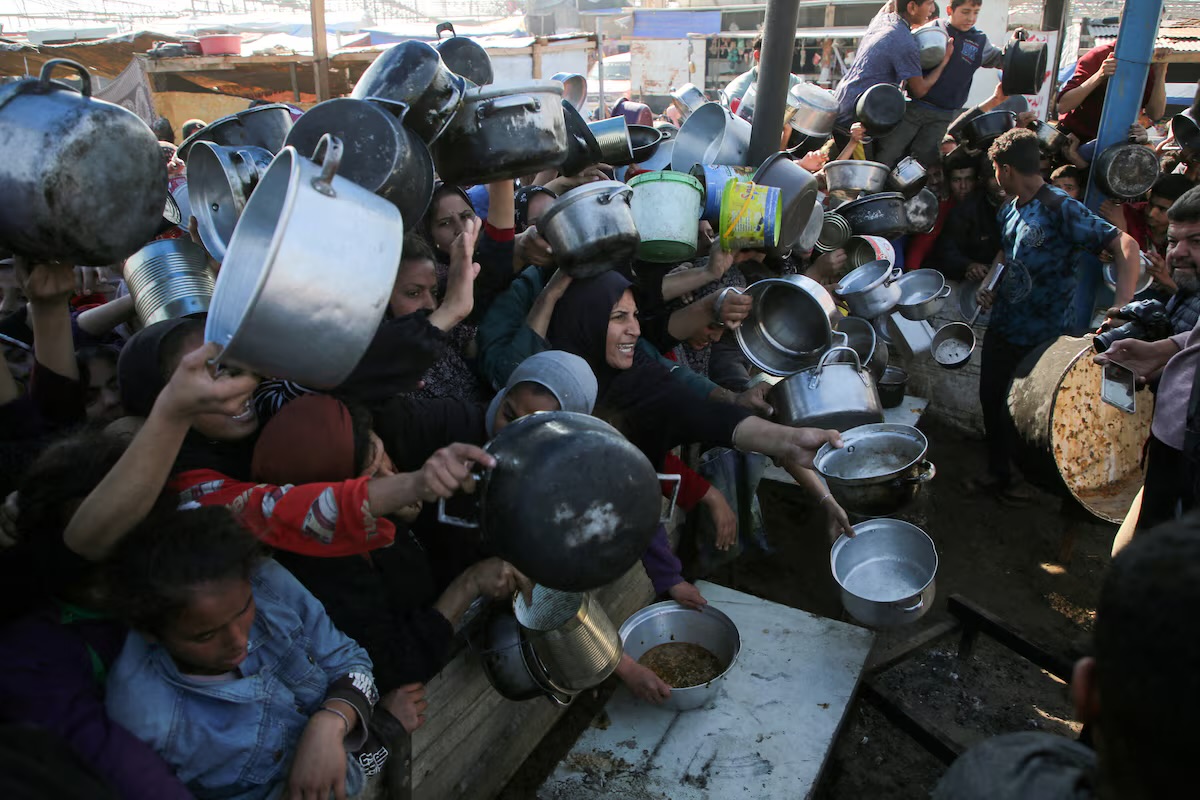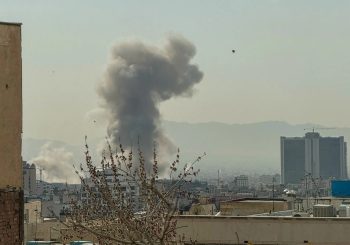Israeli Prime Minister Benjamin Netanyahu announced on Monday, 19 May, that Israel would permit a “basic amount” of food aid into the Gaza Strip, following over two months of a total blockade that had severely restricted the entry of food, fuel, and medicine.
The announcement came shortly after the Israeli military initiated “extensive ground operations” in Gaza, marking a new escalation in the conflict. It also took place alongside ongoing indirect negotiations between Israel and Hamas over a potential ceasefire.
Netanyahu’s office stated that, following a recommendation from the military, Israel will allow “a basic quantity of food to be brought in for the population” of Gaza to “make certain no starvation crisis develops,” despite it interfering with their new offensive plan. They would also “act to deny Hamas’s ability to take control of the distribution of humanitarian assistance.”
While Israel has said the blockade, in place since March 2, is intended to pressure Hamas into making concessions, UN agencies have raised alarms over severe shortages of essential supplies, including food, clean water, fuel, and medical aid ,with the potential for famine among Gaza’s 2.1 million residents.
French Foreign Minister Jean-Noel Barrot urged Israel to permit the “immediate, massive and unhampered” delivery of humanitarian aid to the region.
A U.N. official also stated on Monday that 20 aid trucks, primarily loaded with food, are scheduled to enter the Gaza Strip on Monday, following nearly three months of an Israeli blockade. Israeli authorities have not yet issued a statement. The U.N. official, who was not authorized to speak publicly, provided the information on condition of anonymity.
Negotiators in Doha, Qatar, are “working to exhaust every possibility for a deal, whether according to the Witkoff framework or as part of ending the fighting,” according to Netanyahu’s office. Steve Witkoff, the U.S. envoy to the Middle East, has been actively involved in these discussions.
According to Netanyahu’s statement, any potential agreement would involve the release of all hostages, the removal of Hamas from Gaza, and the disarmament of the territory.
Since Israel ended a two-month ceasefire in March and resumed its military campaign, talks mediated by Qatar, Egypt, and the United States have yet to produce any concrete results.
A senior Hamas official told the media that the negotiations currently taking place in Doha have not led to any progress, citing Israel’s ongoing refusal to compromise.
The source stated that Hamas had offered to release all Israeli hostages in a single stage, but only if a comprehensive and lasting ceasefire could be reached, something the Israeli side has so far rejected. According to the official, Israel’s negotiating team does not have the authority to make decisions on key matters.
Hamas, the source emphasized, is not open to any temporary or partial agreements. The group’s proposal includes the release of all hostages in exchange for a specified number of Palestinian prisoners, a full Israeli military withdrawal from Gaza, and the unimpeded delivery of humanitarian aid.
“Israel wants to retrieve its hostages in one or two batches in return for a temporary truce,” a Hamas official said to the BBC.
On 18 May, rocket sirens were activated in southern Israel. The military reported intercepting one of two projectiles launched from Gaza. Later, the Israeli army ordered evacuations in parts of Gaza, stating that it would “launch a powerful strike on any area used for launching rockets.”
According to Palestinian health officials, more than 50,000 people have been killed since October 7, 2023, with at least 3,193 people killed since Israel resumed its offensive on 18 March. Israel has carried out a sustained military campaign in Gaza, resulting in widespread destruction and a mounting death toll. Although a temporary ceasefire was reached in late January, it was short-lived, and Israel resumed its attacks shortly after, breaking the truce.







Comments (0)